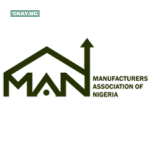The Lagos Chamber of Commerce and Industry (LCCI) has stressed the urgent need for comprehensive reforms in Nigeria’s port sector, highlighting the necessity of full automation and redeployment of digital cargo scanners to address ongoing bottlenecks.
Speaking on the sector’s woes, Gabriel Idahosa, President of the LCCI, lamented that cargo dwell times at Apapa Port remain at an average of 26 days—much higher than the regional standard of five to seven days. He attributed this lag to “persistent manual processes at Customs, bottlenecks in cargo examination, and a heavy human interface that creates stumbling blocks to cargo clearance.”
Idahosa warned that “these systemic challenges are steadily undermining Nigeria’s competitiveness,” especially as major global shipping lines have begun redirecting cargo through neighboring countries, such as Togo, Ghana, and South Africa, in search of more efficient operations.
He cautioned, “We must act swiftly to address the root causes,” urging authorities to implement the long-awaited National Single Window Project, automate every stage of cargo clearance, and deploy modern scanners throughout all major ports.
The LCCI also voiced its concerns about the recent 15 percent increase in port tariffs by the Nigerian Ports Authority, arguing it places extra burdens on freight operators already struggling with inflation and volatile exchange rates. “While the intention may be to improve infrastructure, this tariff hike is ill-timed and insensitive to current realities in the sector,” Idahosa noted.
According to the business group, additional customs queries on imported goods continue to cause substantial delays and, at times, open doors for arbitrary practices. Idahosa called for deeper collaboration between port stakeholders and Customs “to streamline procedures and curb discretionary bottlenecks.”
Despite these challenges, the LCCI acknowledged improvements in port-related logistics, including a drop of up to 60 percent in transport costs from the port. “Just months ago, moving goods from Apapa to Ikeja could cost as high as N1m. Today, those costs have dropped considerably. This is a welcome relief for shippers,” Idahosa observed.
He commended the Nigerian Railway Corporation for expanding rail operations from Apapa to Lagos and Ibadan, calling it “a promising shift that enhances efficiency and reduces logistics costs.”
Idahosa reaffirmed the Chamber’s commitment to collaborate with Customs and the Ministry of Transportation on sector reforms, emphasizing, “We are committed to working with all relevant agencies to fix these issues. The time to act is now.”
Meanwhile, the Importers Association of Nigeria echoed LCCI’s call, expressing hope that reforms, particularly the National Single Window, will facilitate clearance within as little as three hours and boost turnover for traders.
President of Importers Association, Kingsley Chikezie, explained, “Once you enter the National Single Window, it will increase the revenue generation of the government because there will be serious turnover… We expect that by registering in NSW, we can hasten the clearance of our shipments that would have taken a long time, sometimes months, and be done within three hours.”
okay.ng reports that stakeholders are united in demanding swift action, warning that failure to adapt to international standards could see Nigeria become further marginalized in global maritime logistics.







